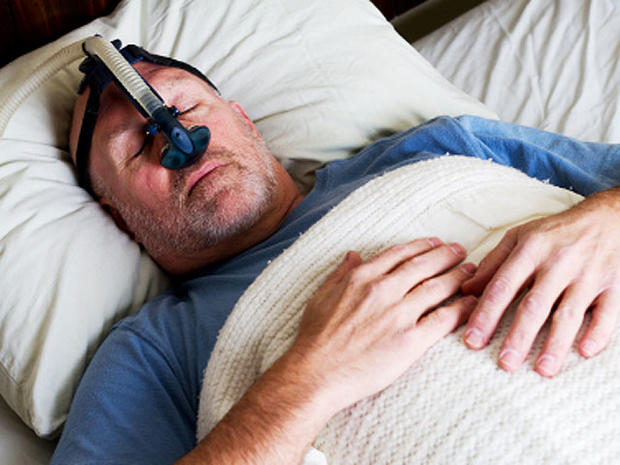Sleep apnea-dementia link revealed in new study
(CBS) Scientists are sounding the alarm over sleep apnea, saying a new study shows that people who have the common sleep disorder are twice as likely to develop dementia.
The study - published in the August 11 issue of the Journal of the American Medical Association - seems to confirm sleep experts' long-suspected belief that sleep apnea, a.k.a. sleep-disordered breathing, can deprive the brain of oxygen to cause declines in cognitive ability.
"This is the first study to show that sleep apnea MAY lead to cognitive impairment," study leader Dr. Kristine Yaffe, professor of psychiatry, neurology and epidemiology at the University of California at San Francisco, said in a written statement. "It suggests that there is a biological connection between sleep and cognition."
For the study, scientists checked the cognitive ability of 298 women over the age of 65, none of whom had been demented when tested five years previously. They found that 32.5 percent of the women had dementia or mild cognitive impairment - with the risk for cognitive impairment almost twice as high in those who had sleep apnea.
Although the study involved only women, it's likely the results also apply to men, the San Francisco Chronicle reported.
The good news? The study suggested that getting treated for apnea might help prevent or delay the onset of dementia, Yaffe said.
Just what is sleep apnea? It's a chronic condition in which the collapse of fleshy tissue in the throat blocks the flow of oxygen during sleep. Symptoms include loud snoring, choking or gasping during sleep, and daytime sleepiness.
There are various treatments for apnea, including weight loss and surgery. But the most common treatment, continuous positive airway pressure (CPAP), involves wearing an oxygen mask during sleep. Because the mask can be uncomfortable, up to half of patients who try it stop wearing it, the Chronicle reported.
"I have plenty of patients who struggle with the mask," Dr. Marci Teresi, clinical lead of the Kaiser Permanente Santa Clara Memory Clinic, told the paper. "But if this is something we could actually treat and prevent dementia, that would be great."
The National Heart Lung and Blood Institute has more on sleep apnea.
